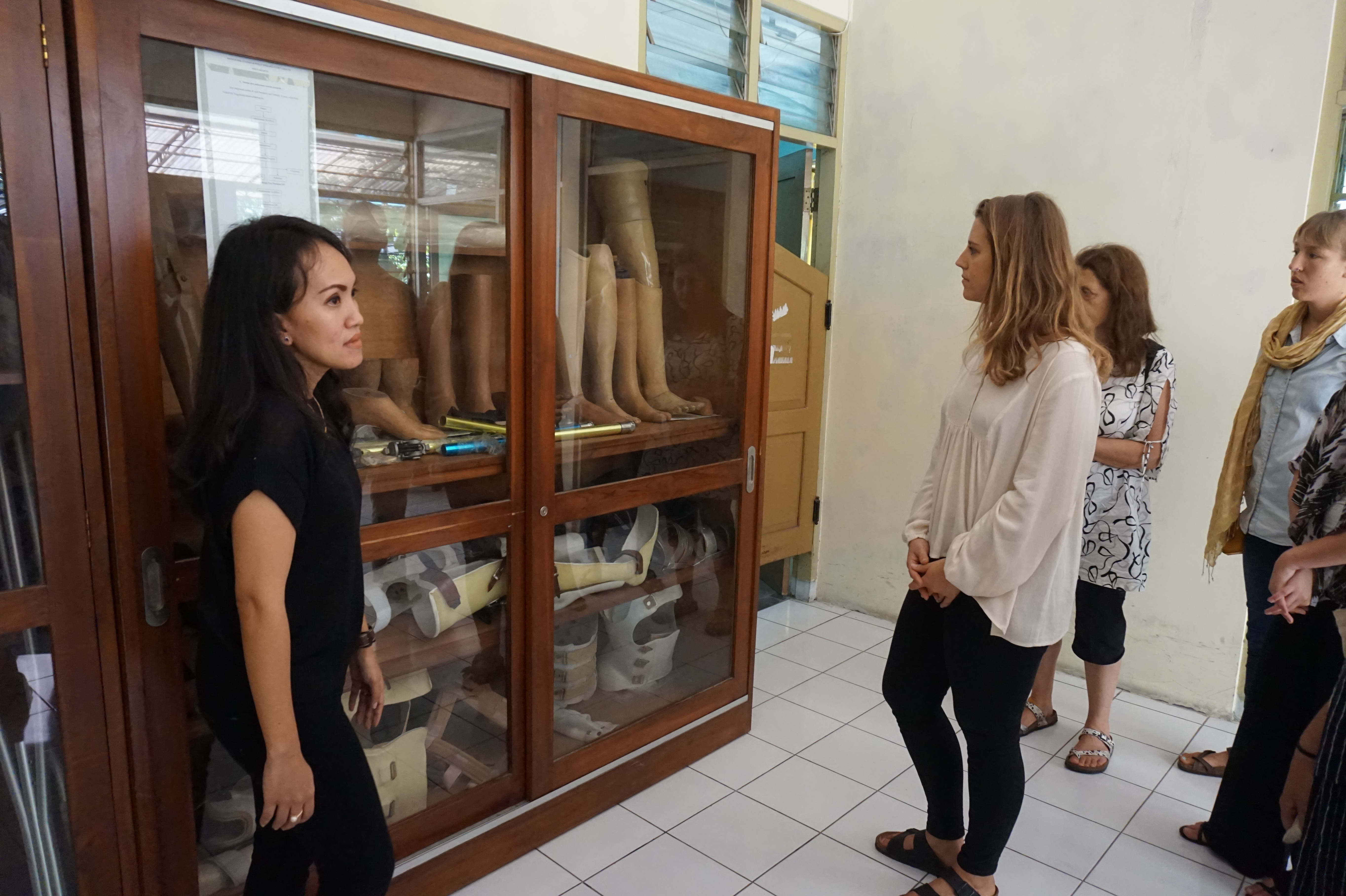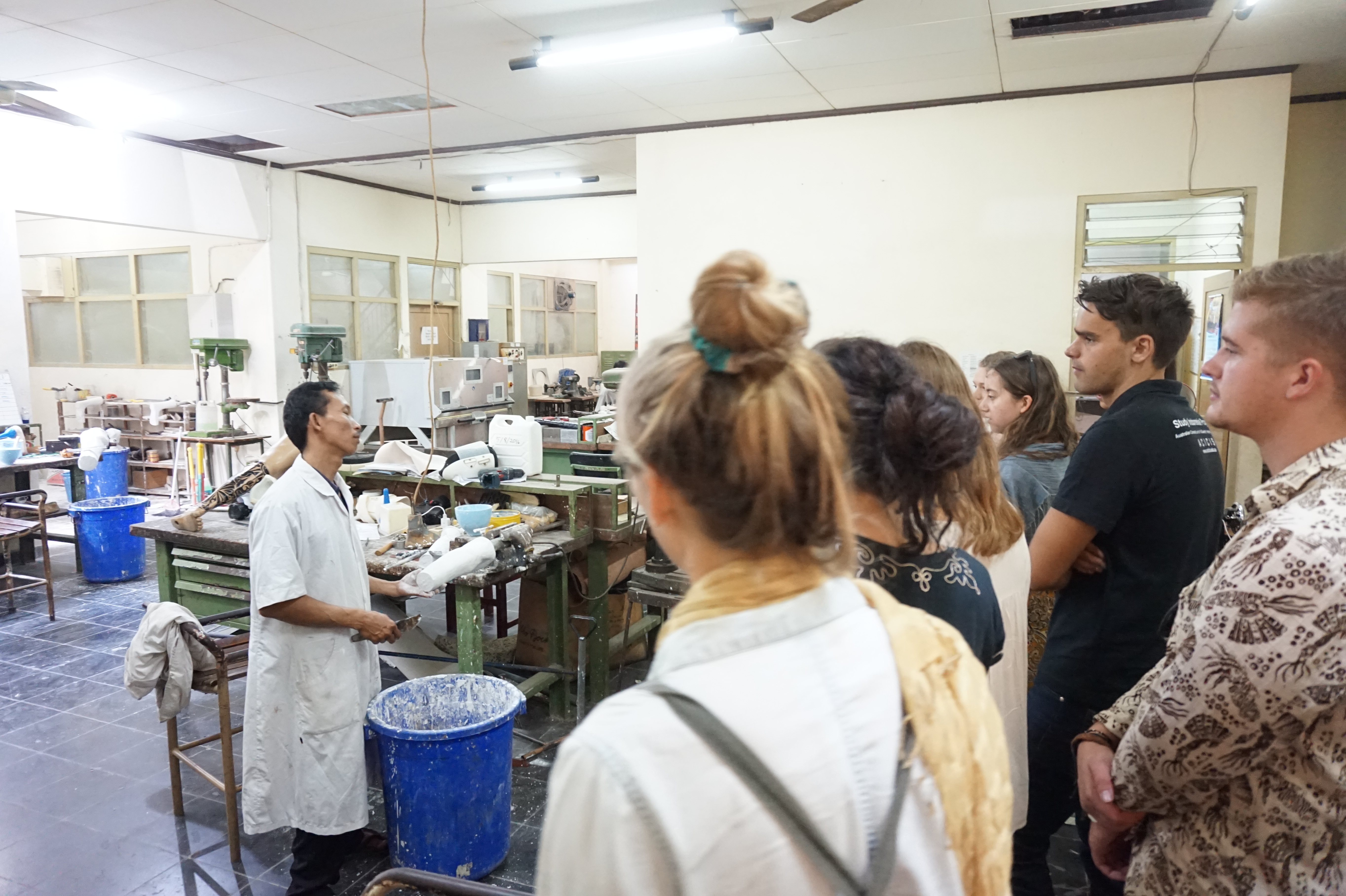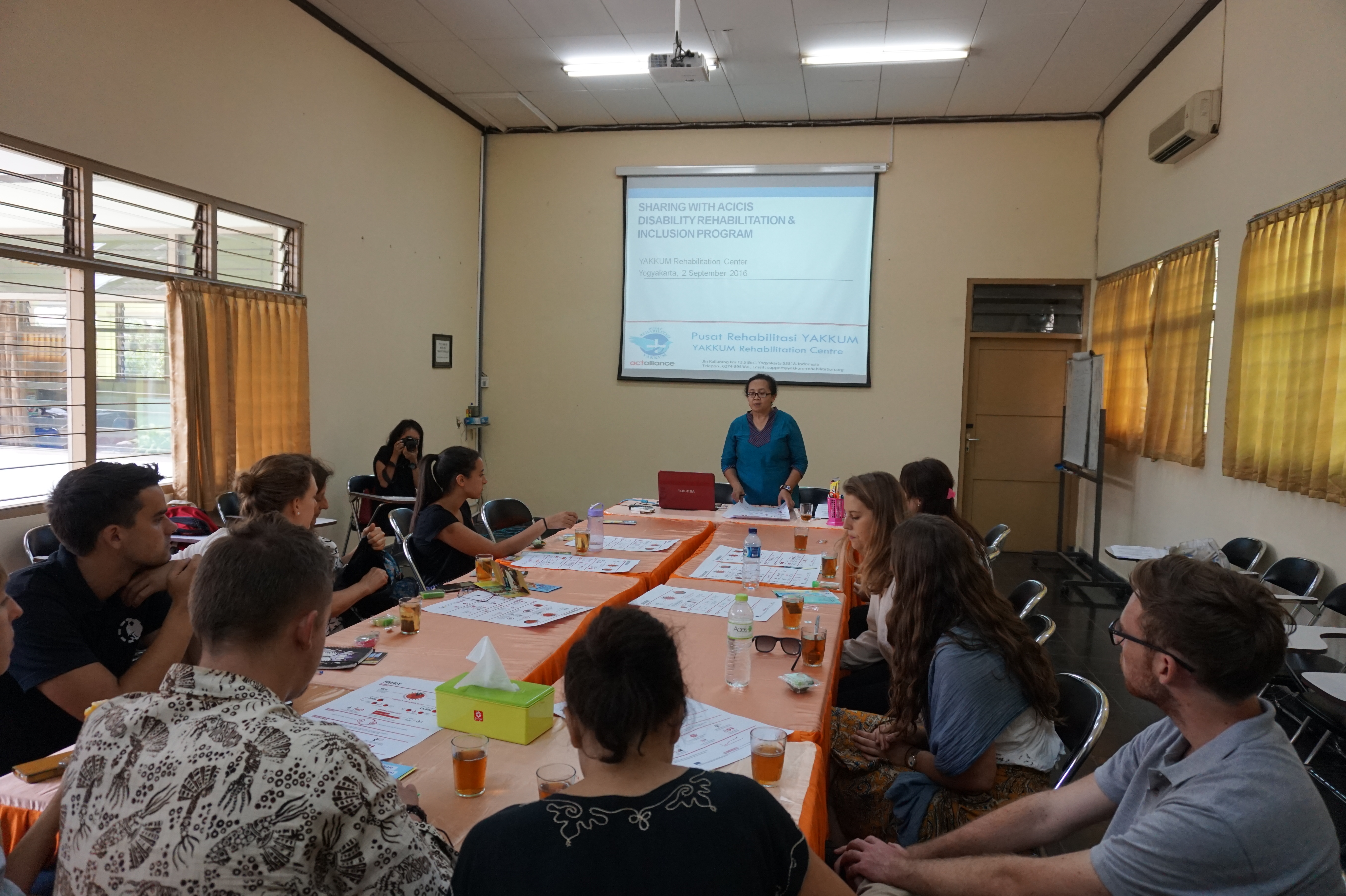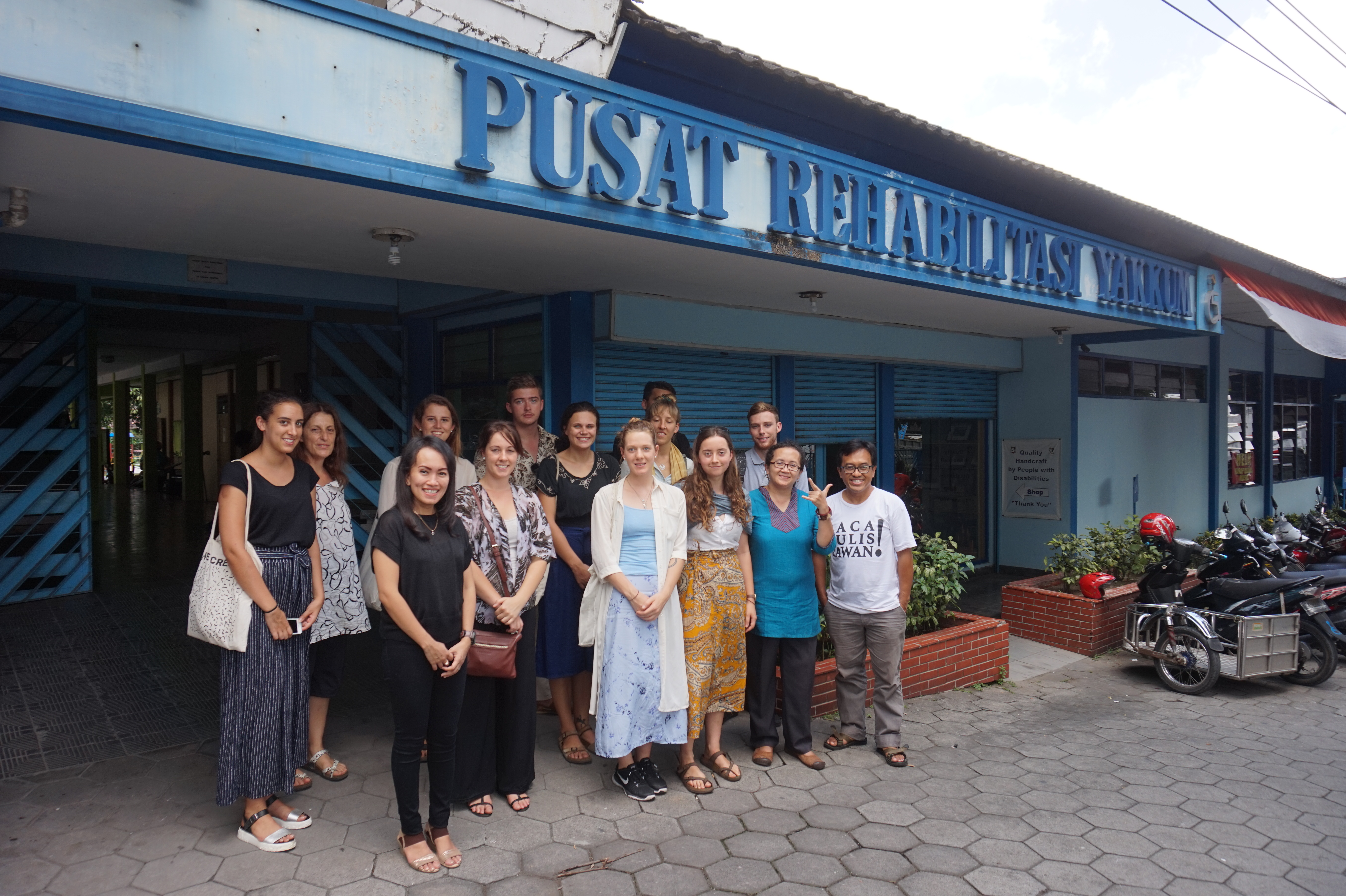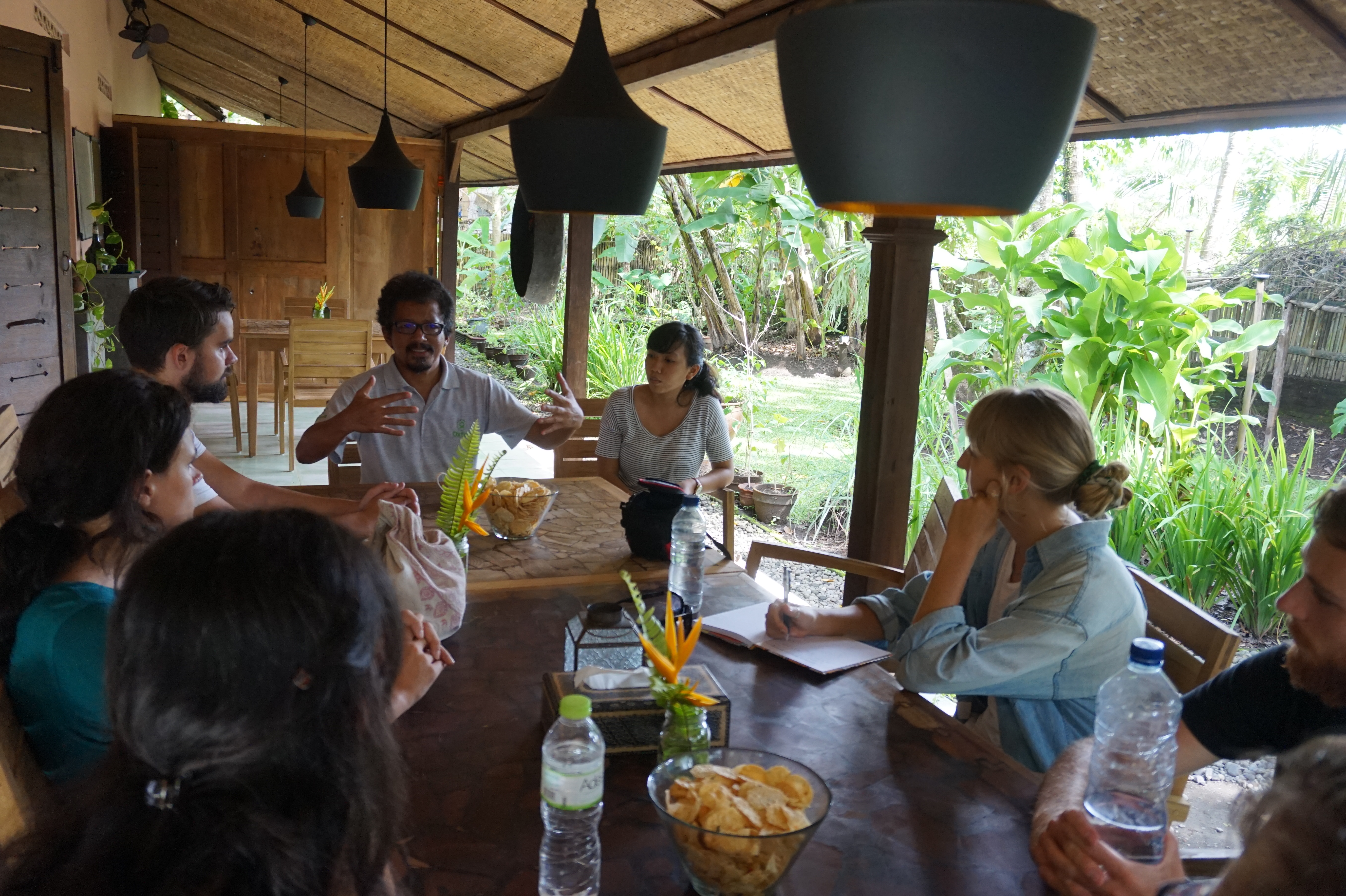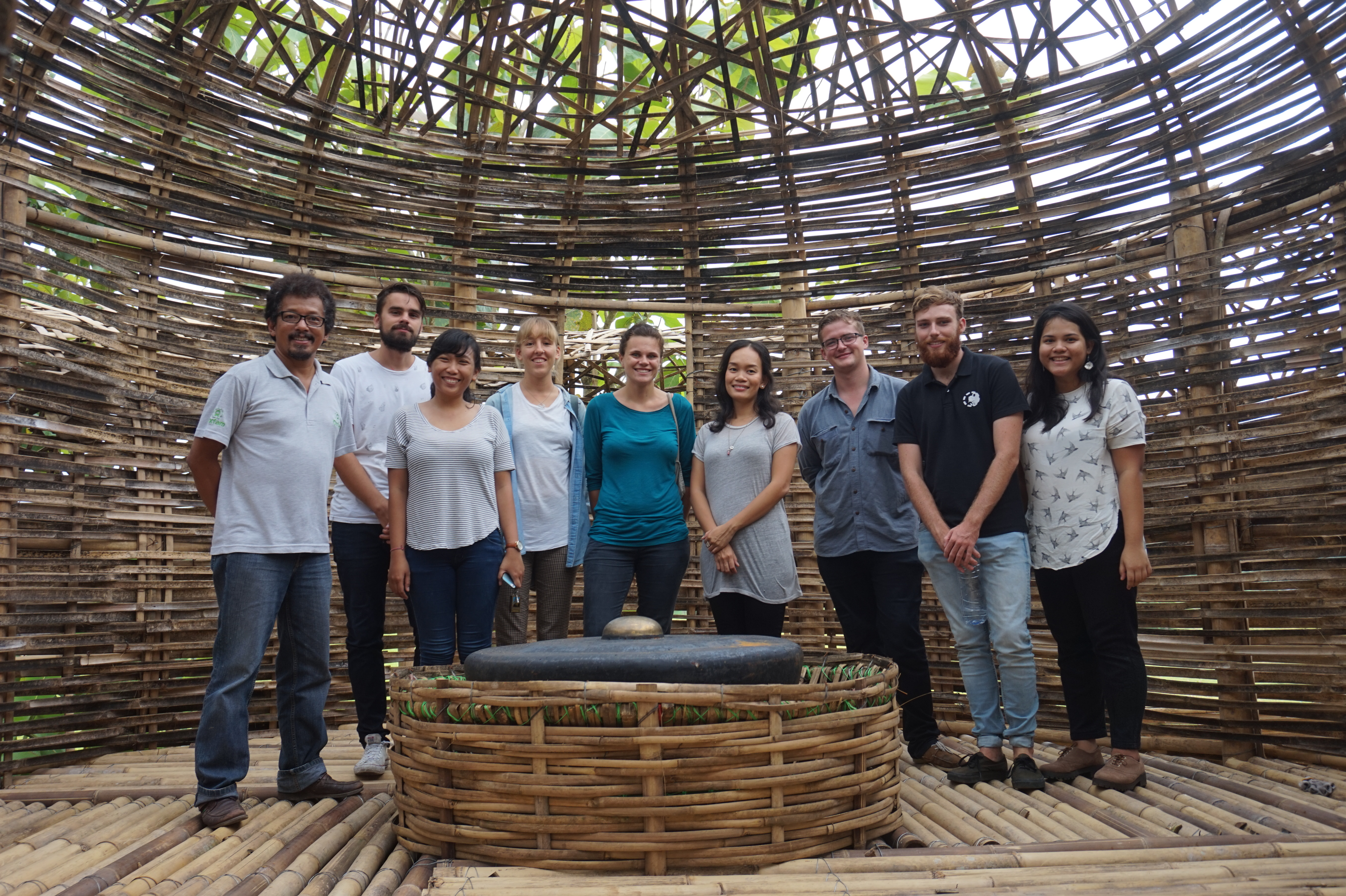12 students from Murdoch University, University of Tasmania, Monash University, The University of Queensland, University of the Sunshine Coast, and RMIT University on the Semester 43 (Aug 2016) Development Studies Immersion Program (DSIP) have completed their seminar series and case studies.
The seminar series opened with a lecture on the overview of development challenges in Indonesia, led by ACICIS Development Studies Coordinator Pak Anton Indrianto. The students then had the opportunity to begin their first case study in the Kali Code (River Area) in Yogyakarta to observe the conservation efforts underway. Since 2000, a movement to keep the Code River clean and litter free has been carried out by several organisations that united to become the Yogyakarta Code Society. The Yogyakarta Code Society collaborates with Universitas Gadjah Mada, Universitas Islam Indonesia, and other local and international institutions to preserve the river system.
The second seminar was hosted by Daya Annisa and focused on women empowerment through micro-businesses using economic empowerment as an ‘entry point’ for women. The students had the opportunity to visit the communities and the women groups that Daya Annisa assists on a regular basis. Daya Annisa is a non-profit organisation that was founded in 2005 that emphasises on capacity building, financial independence, and provides financial assistance & training to foster the empowerment of women.
For the third seminar, the students had the opportunity to meet with the staff of Pusat Rehabilitasi Yakkum (Yakkum Rehabilitation Centre) and tour the facilities available. The centre was established in 1982 by Collin McLennan with the support of the Presbyterian and Methodist Church Alliance in New Zealand. The Centre works to assist children and teenagers with physical disabilities to become physically and economically independent, this can include physical rehabilitation and providing the individuals with assistive devices.
The fourth seminar and case study was spent with Eliminate Dengue Yogyakarta (EDP Yogya). The students had the opportunity to learn about public health – particularly in dengue prevention, community engagement strategies, and the ongoing research efforts of EDP Yogyakarta.
The fifth seminar and case study was spent with Radio Komunitas Lintas Merapi. 26 volunteers for the local community monitor the situation of the volcano, through this community radio, the communities are able to exchange information on the status and the activities of Mt Merapi. The organisation also works closely with the local community on environmental protection and on developing sustainable projects.
For the final seminar and case study students met with experts from Humanitarian Benchmark Consulting, a company based out of Indonesia and Australia that focuses on sustainability, humanitarian response, disaster coordination, organisational development and capacity building. The students also had the opportunity to speak with Mr Benny Usdianto, the Director of RedR Indonesia Indonesia, who is one of Indonesia’s leading experts on disaster preparedness and response and is currently part time, engaged on the development of Indonesia’s new National Disaster Response Network.
See here for more information about the Development Studies Immersion Program.
